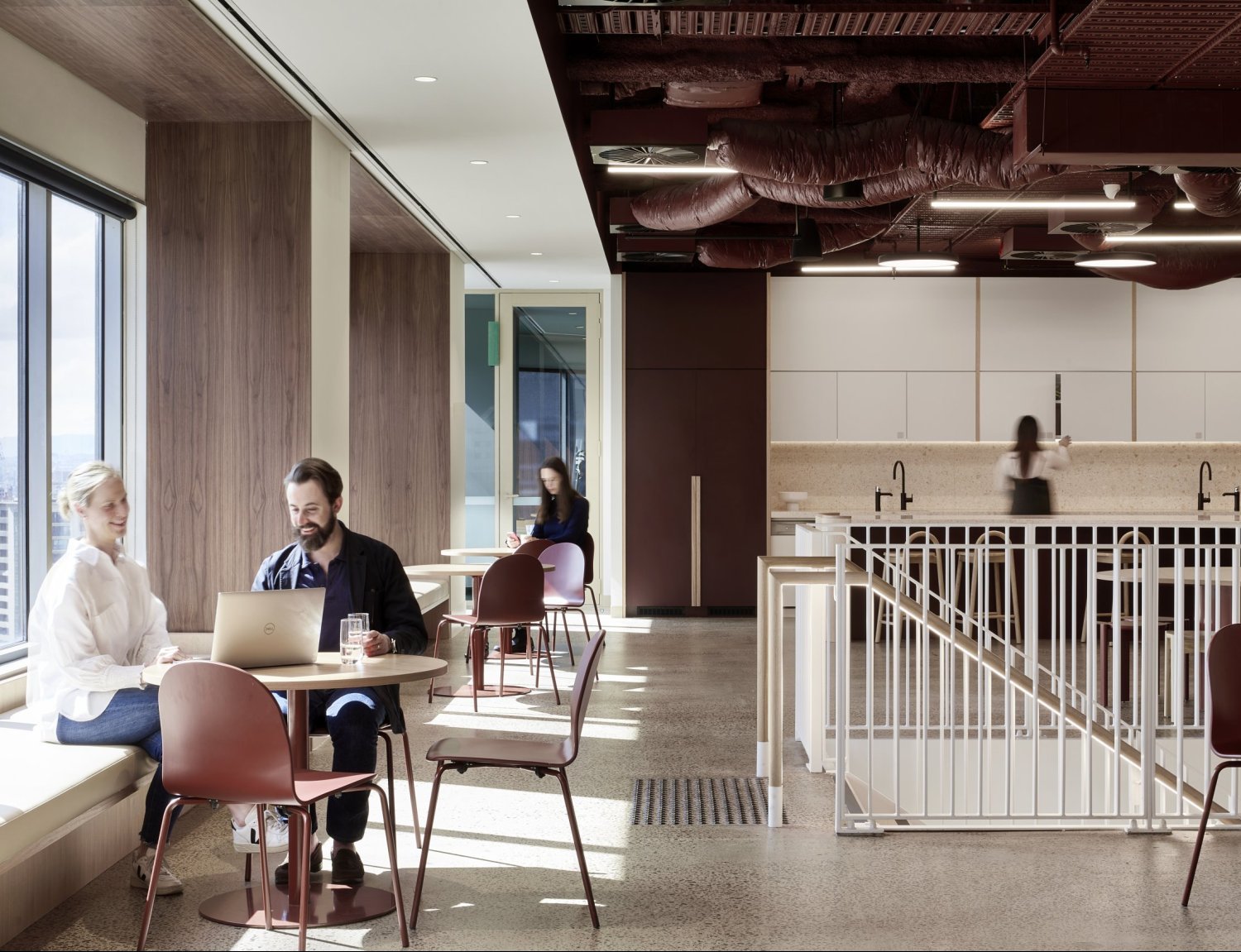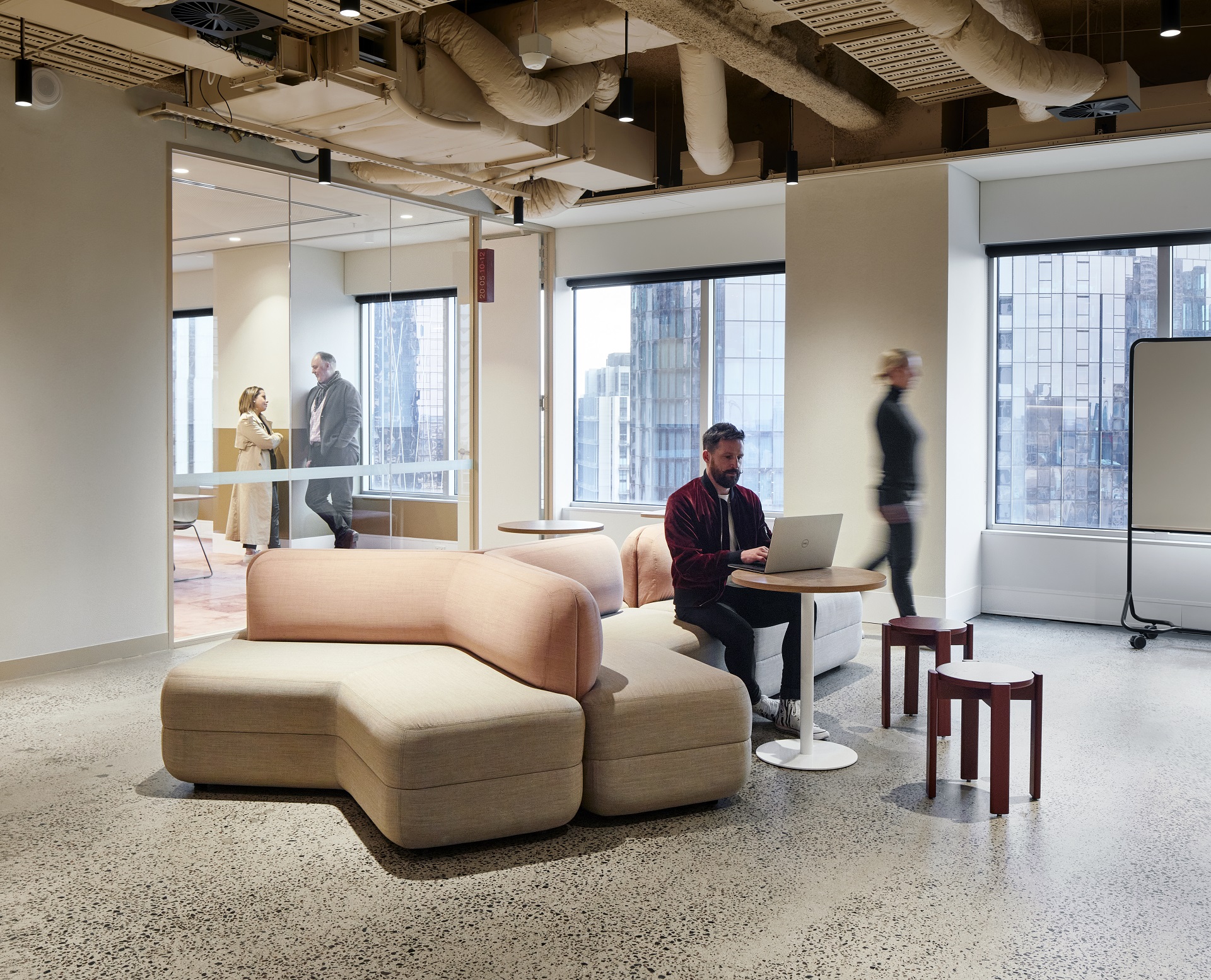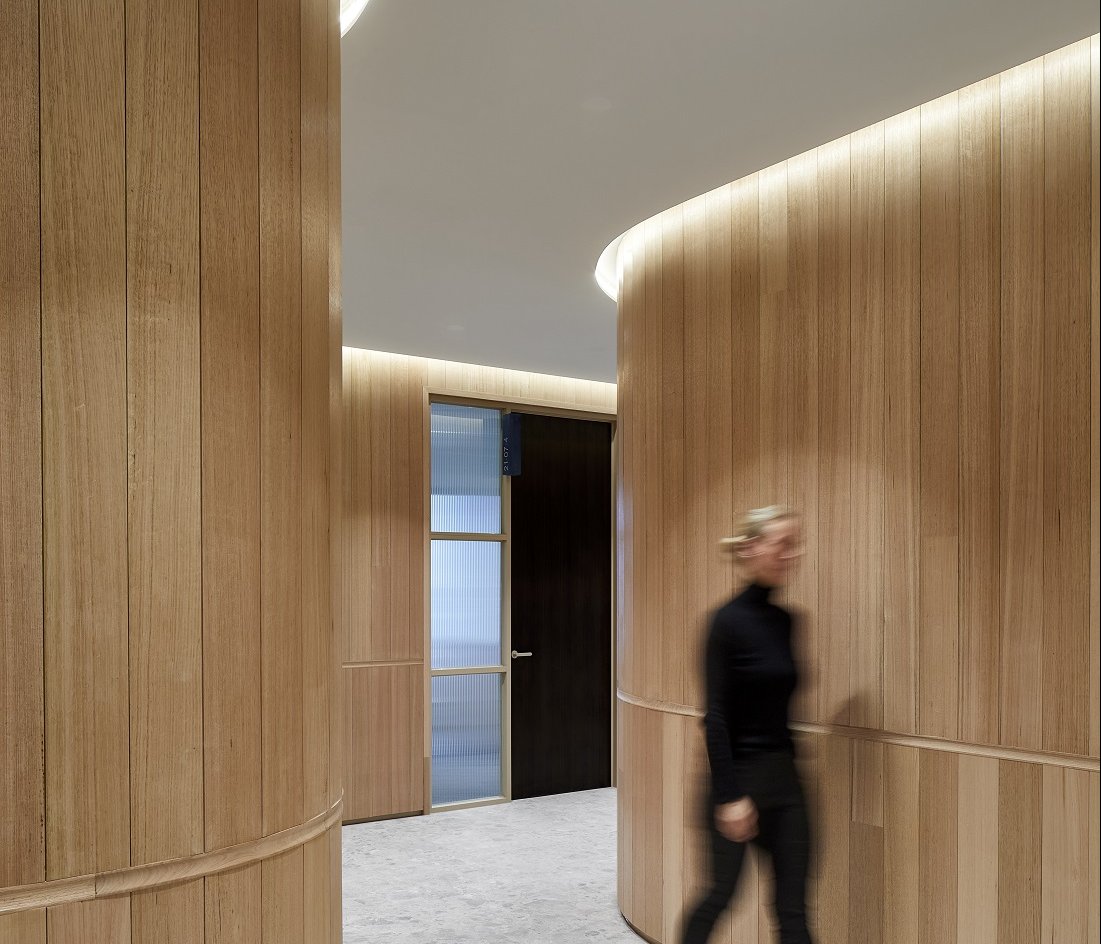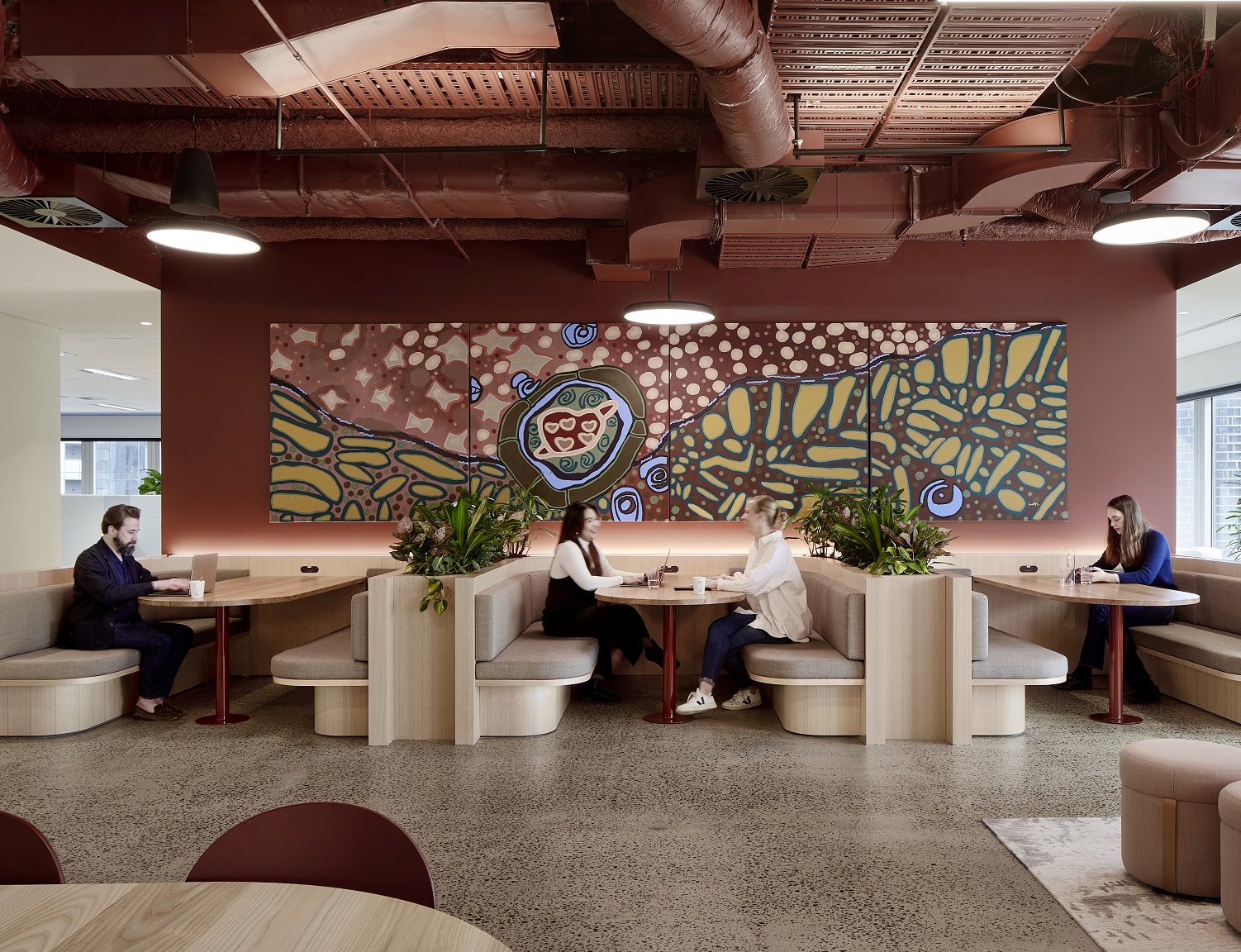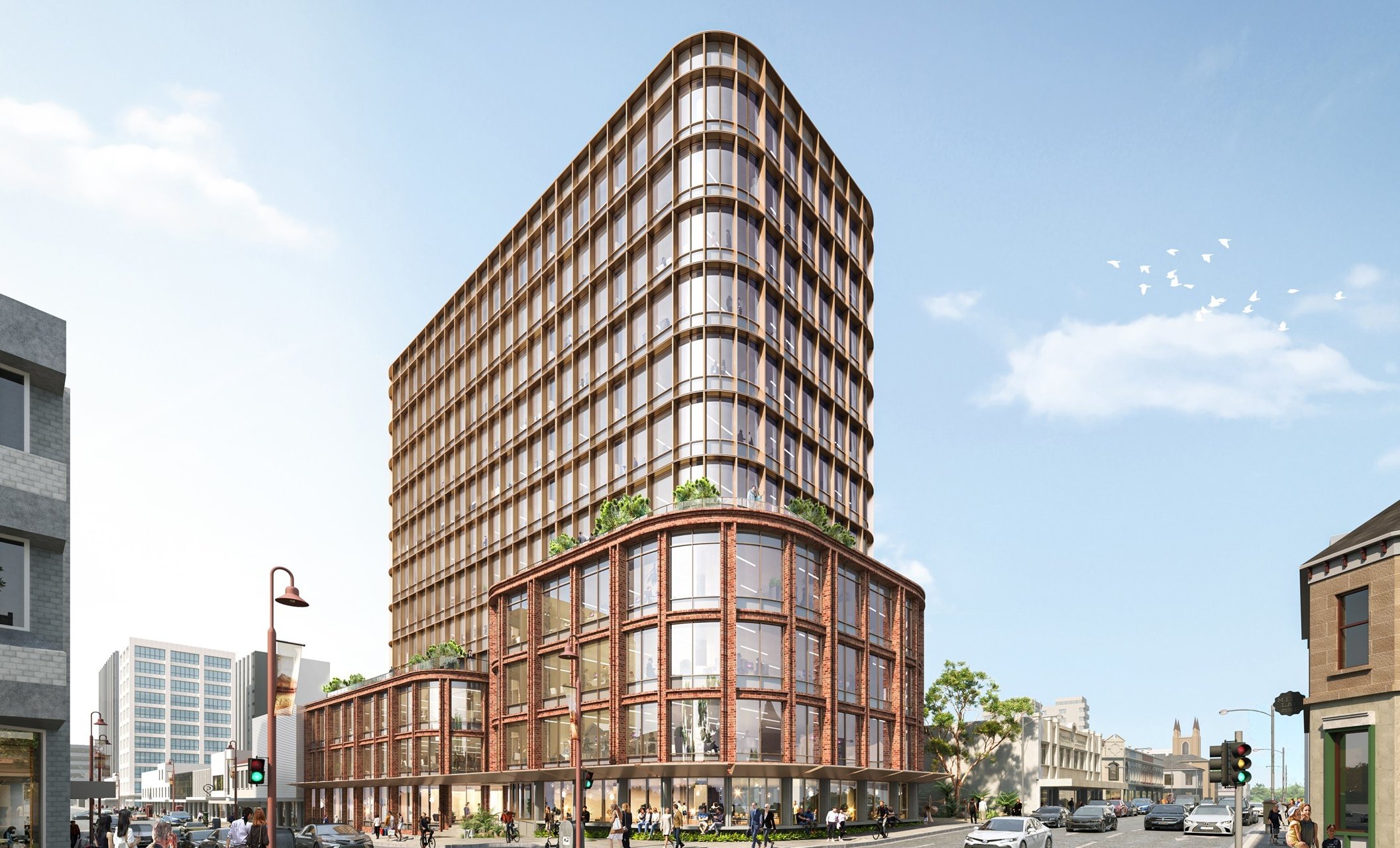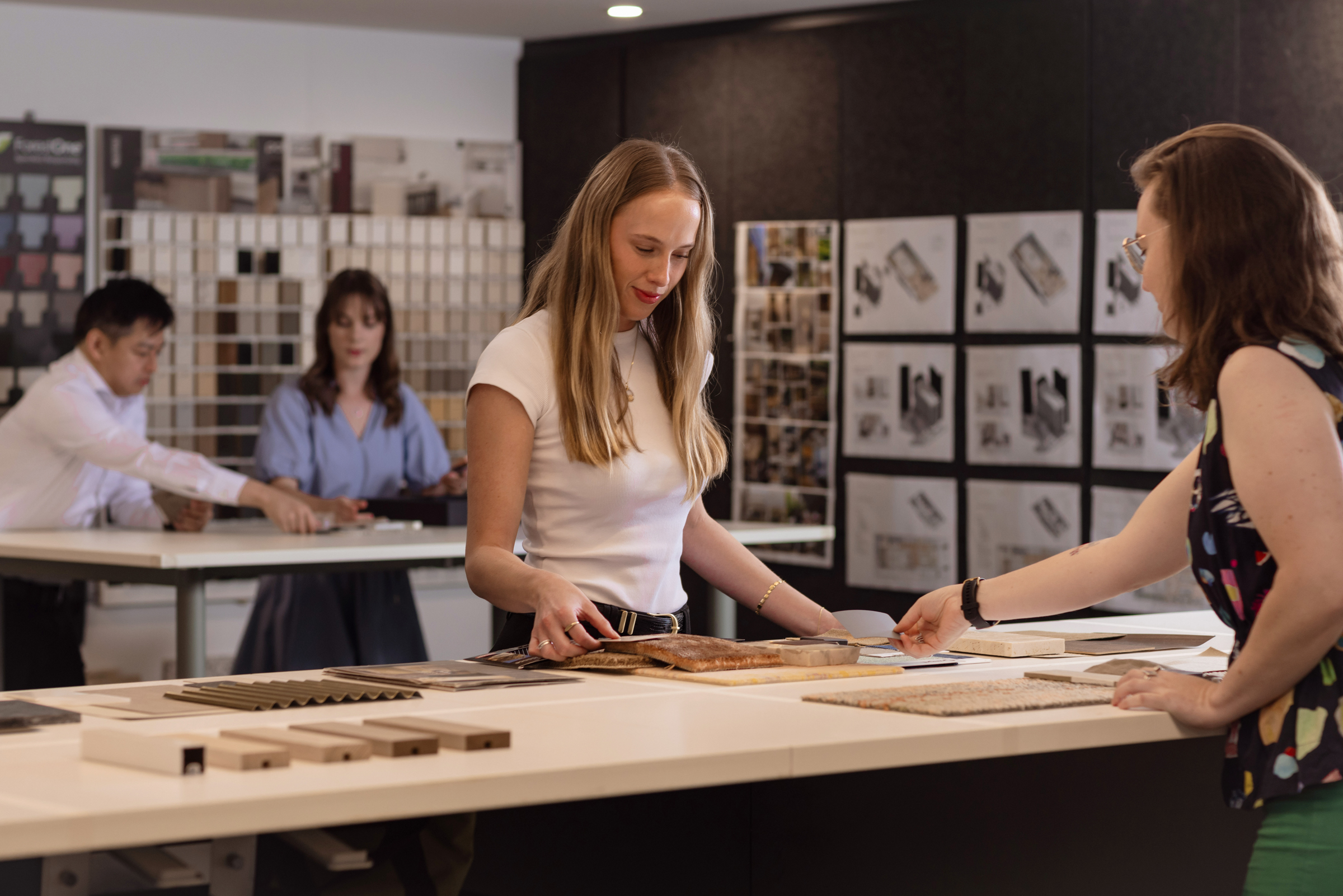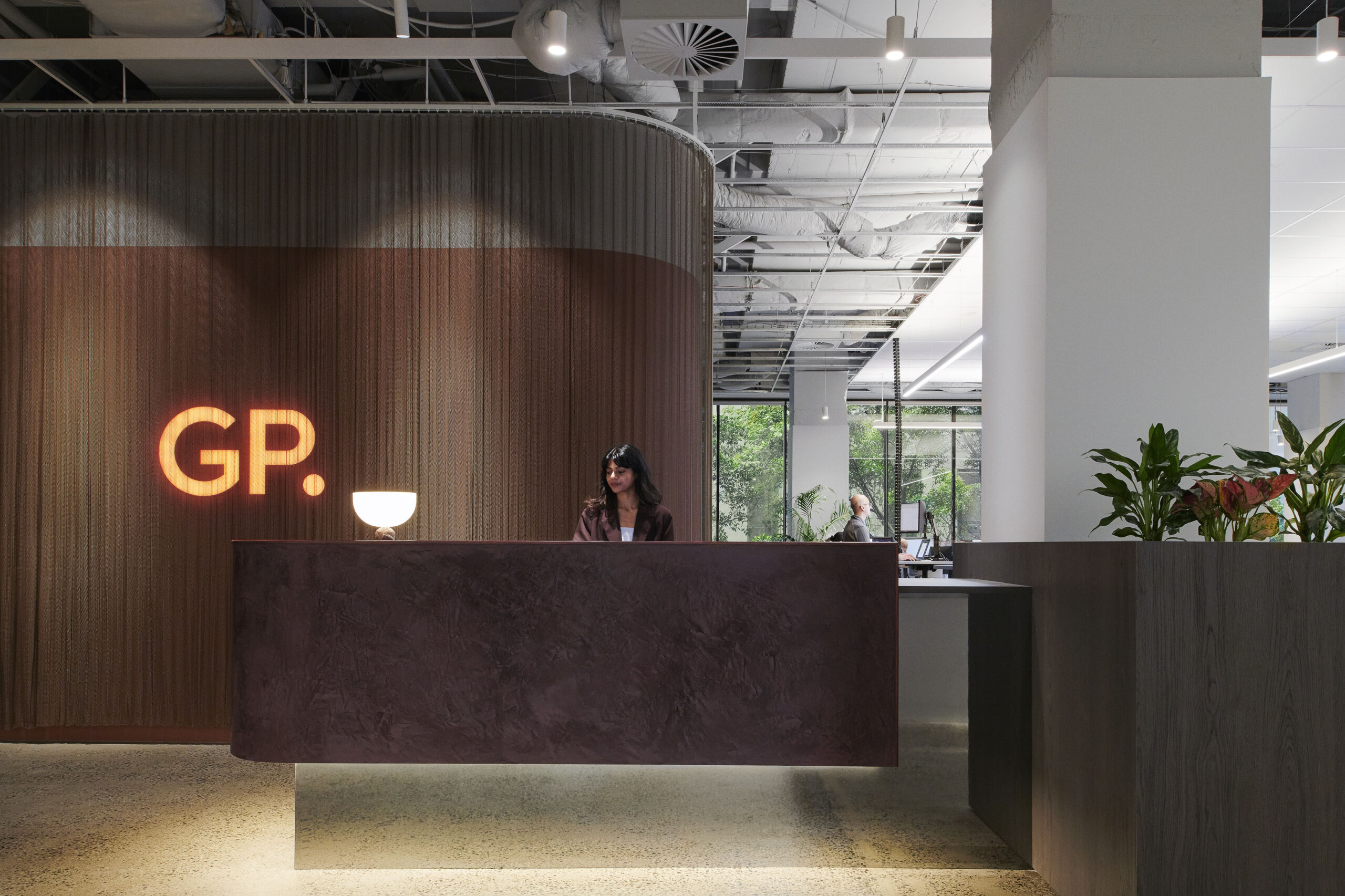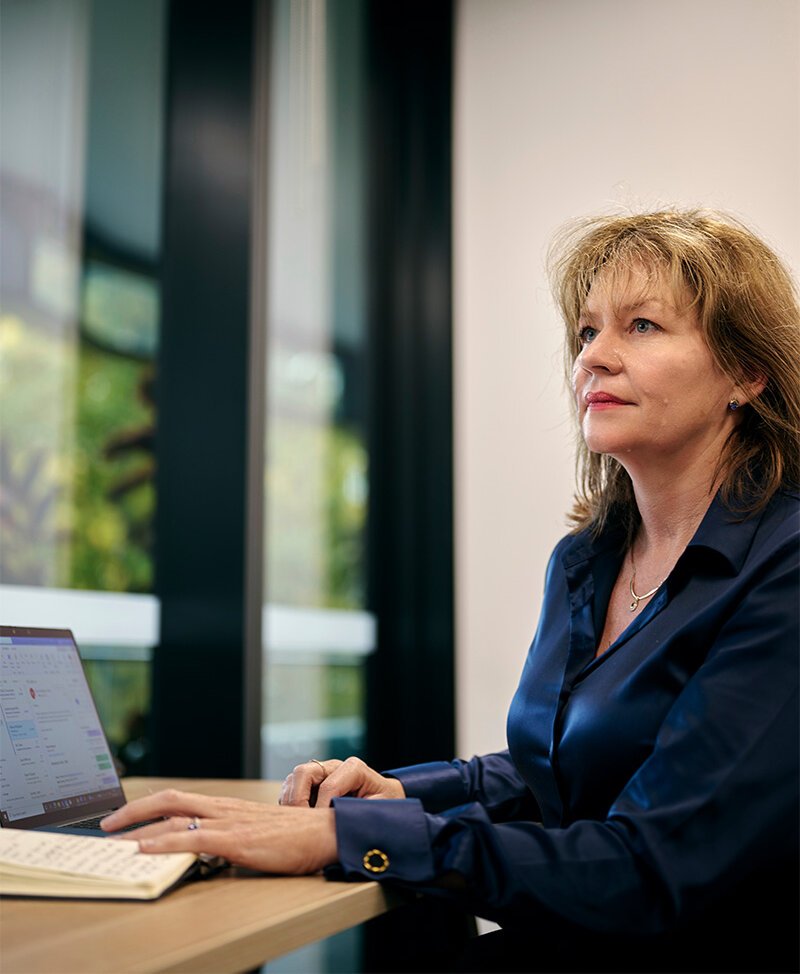It was imperative to create a sensory experience for the staff of McMillan Shakespeare. To achieve this, the team focused on creating captivating focal points throughout the space. Arguably the most captivating is the large mural spanning across the wall of the central super kitchen across 3 separate canvases.
The mural, made in collaboration with Emily Crockford of Studio A, a Sydney-based studio that provides professional development for artists with intellectual disabilities, serves as a visual centrepiece for the central hub. The partnership with Studio A was established through THERE, a collaborative partner, as a way to align with McMillan Shakespeare’s business, which includes disability plan management.
“Emily took inspiration from our original conceptual direction and presented a series of concepts that we worked to refine. From here, she developed a piece that worked with our designs. We then collaborated to craft a space in the backend that supported her mural,” said Ben.
“It was a delight to design a special space that the McMillan Shakespeare team can come back to after working from home for so long. We wanted to give them a new home and a place where they can come back together and connect. It has been really rewarding,” concluded Ben.

